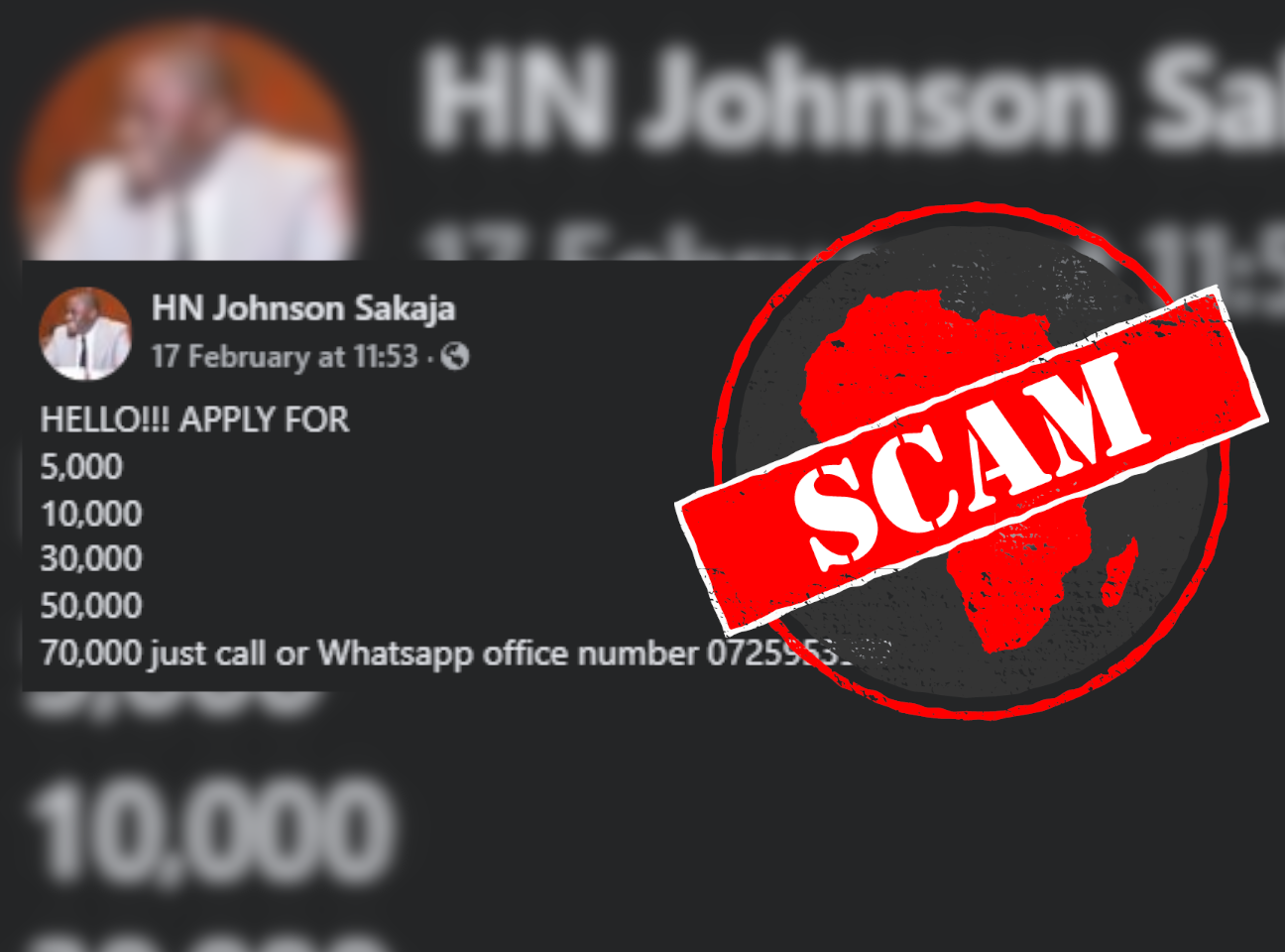IN SHORT: Fraudsters on Facebook often use the names of prominent Kenyan politicians to entice people wanting to borrow money. This account using the name of the governor of Nairobi to offer loans may be trying to scam you or steal your personal information.
The Facebook account HN Johnson Sakaja is offering loans to Kenyans.
The account, which has over 1,000 "friends", uses the name and photos of Johnson Sakaja, the governor of Nairobi county.
One such post, published in a public Facebook group with thousands of members, advertises loans of up to KSh70,000 (about US$5000). Those interested in the offers are instructed to reach out via WhatsApp.
But is the account and its offers legitimate? We checked.

Ignore fake Facebook page
The poor writing in the account’s posts is the first red flag. It's unlikely that the governor of Kenya’s capital city would share content riddled with grammatical errors, random capitalisation and unusual punctuation.
The Facebook account also started posting loan offers in 2024. It is improbable that the governor, who has been in office since August 2022, would set up a social media account almost two years into his term to offer loans to Kenyans.
In addition, the request for private communication only on WhatsApp raises concerns about potential attempts to scam users or obtain their personal information.
The governor’s official Facebook page Sakaja Johnson is verified by Meta and has 840,000 followers. Notably, there are no loan offers advertised on his verified page.
The account in question is fake and its offers are a scam.
Read our guide to Facebook scams and how to spot them here.
Republish our content for free
For publishers: what to do if your post is rated false
A fact-checker has rated your Facebook or Instagram post as “false”, “altered”, “partly false” or “missing context”. This could have serious consequences. What do you do?
Click on our guide for the steps you should follow.
Publishers guideAfrica Check teams up with Facebook
Africa Check is a partner in Meta's third-party fact-checking programme to help stop the spread of false information on social media.
The content we rate as “false” will be downgraded on Facebook and Instagram. This means fewer people will see it.
You can also help identify false information on Facebook. This guide explains how.




Add new comment